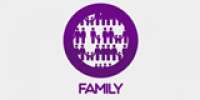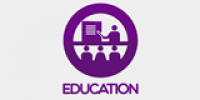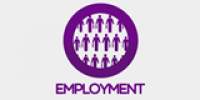Attitudes, opinions, beliefs about LGBTI equality in Europe
In September 2015, ILGA-Europe and PIRC (Public Interest Research Centre) started a new project, Reframing LGBTI Equality in Europe. We want to understand how people in Europe think about LGBTI equality and to adjust our communication accordingly to increase support and mobilisation. Help us by sending surveys, resources, literature...you name it - from all over Europe.
Our project seeks to investigate how we might best frame issues of LGBTI equality in a European context. Read more about the project here.
Call for relevant literature
To be able to start that investigation, ILGA-Europe and PIRC are issuing an urgent call for all relevant literature.
Note note note! A lot of literature has already been collected, but some areas are missing. We are now looking for filling the gaps on the literature collected by calling for research and data on attitudes towards and beliefs about LGBTI equality in the following countries: Belarus, Turkey, Moldova, Greece, Spain, Portugal, Austria, Hungary and Montenegro. Research on attitudes specifically towards bisexual and intersex people is also lacking at the moment.
What we’re looking for:
When we say any relevant literature, we really do mean anything.
- Are you aware of any research that documents attitudes towards and beliefs about LGBTI equality, or how LGBTI equality is framed, in a European context? This data could be from opinion polls, university research, NGO projects or information from private foundations. Please send us any literature you have; even a small piece of information could add great nuance to our project.
- We are interested in literature from all 49 European countries (47 Memeber States of the Council of Europe + Belarus and Kosovo).
- This information can be in English or your national language. If requested the information will be treated as confidential and/or anonymous.
- The literature you refer us to doesn’t even have to be completed. If you know about an on-going project, at a local university for example, just tell us about it and we can contact the researchers individually for more in-depth queries.
How you can help:
- Send us literature – either send us an email or submit information below.
- Connect us – are there other people we should be talking to? Please put us in touch with them.
- Inform us – are there other questions we should be asking? Are there communications, messages or campaign that work well in your own national context that we might not know about?
The research carried out in this literature review will provide the foundation for our entire Reframing LGBTI Equality in Europe project so, if you have relevant information you’d like to share, please let us know!
What the project Reframing LGBTI Equality in Europe is about
The way that an issue (such as the myriad issues involved in LGBTI equality) is framed shapes the way a person will respond to it: whether they respond positively or negatively, and what type of solution they believe is appropriate.
This is an exploratory project and we’re interested to understand what cultural and other contextual differences there are across the region.
Our research currently falls into three main areas of questioning:
- How do people in Europe currently think about LGBTI equality? Here, we’re particularly interested in attitudes and beliefs about LGBTI people and related issues that will help us understand the models that people use to reason about these issues.
- How is LGBTI equality currently framed in Europe? How do advocates, opponents, and the public currently talk about LGBTI equality? What can this tell us about how people think about these issues? Which issues are most contentious? Which may be most strategic?
- What do we currently know about the effectiveness of communicating LGBTI equality? What has and hasn’t worked in advocating for (or opposing) LGBTI people? Has research been done prior to or following particular campaigns or advocacy to measure their effectiveness?
Contact us
Do you have any questions about the project - contact Valeria Santostefano, Programmes & Policy Officer ILGA-Europe, or Elena Blackmore, PIRC


 Print HTML
Print HTML









